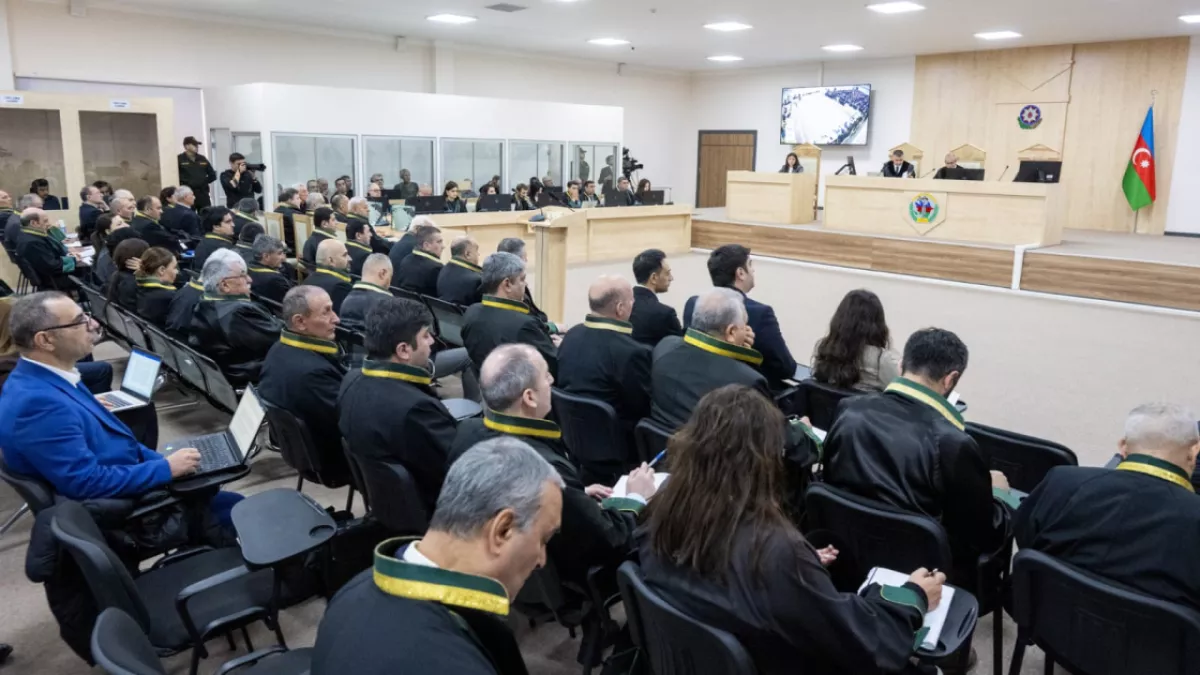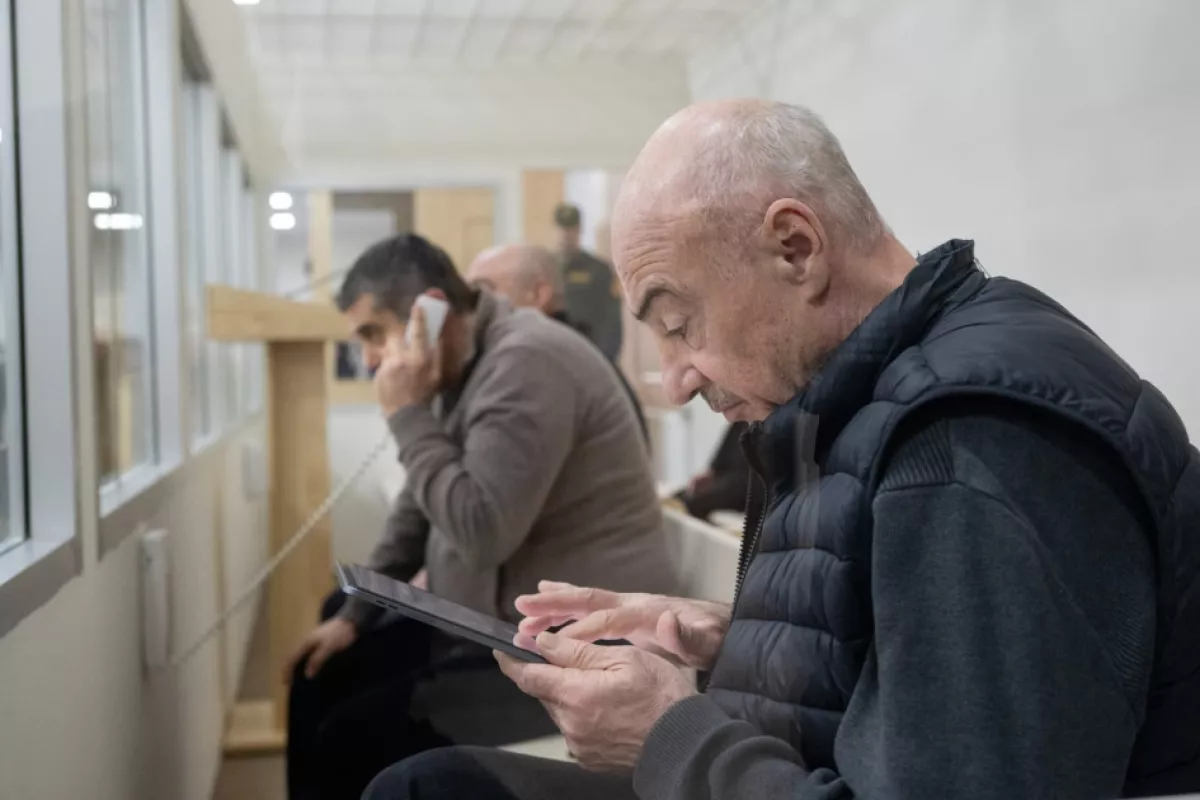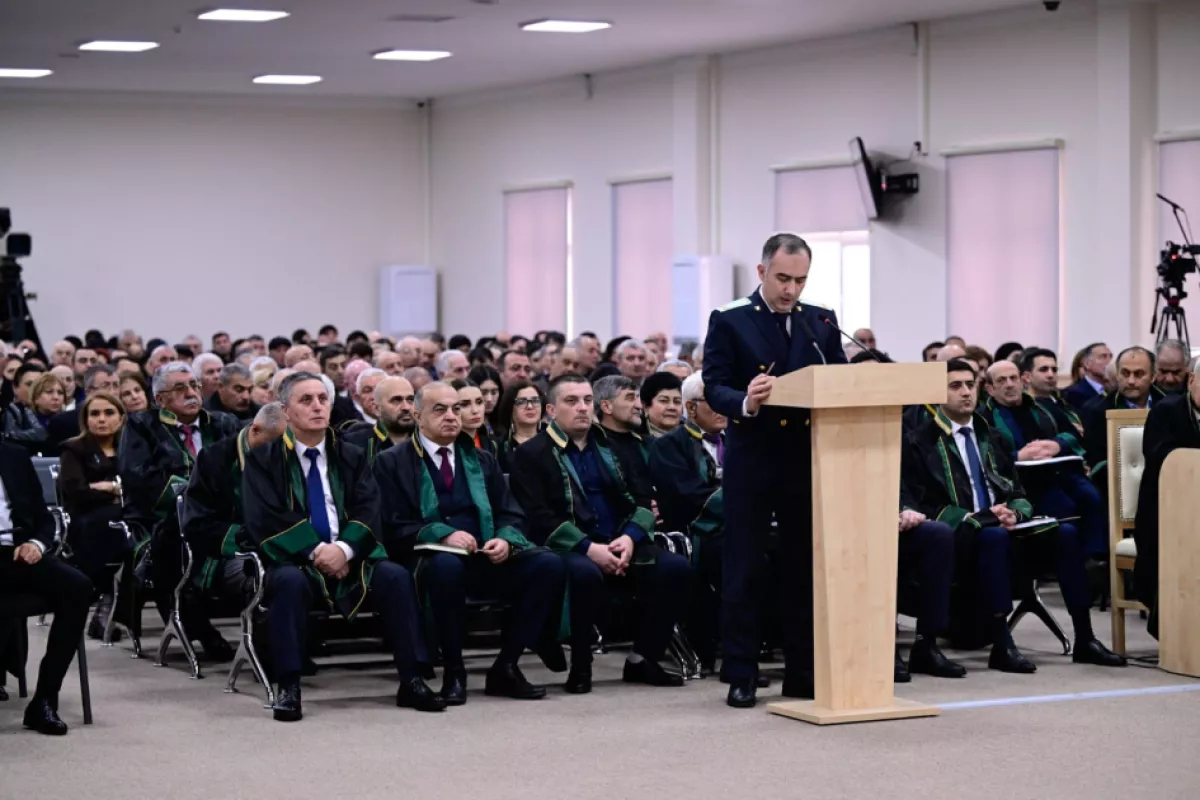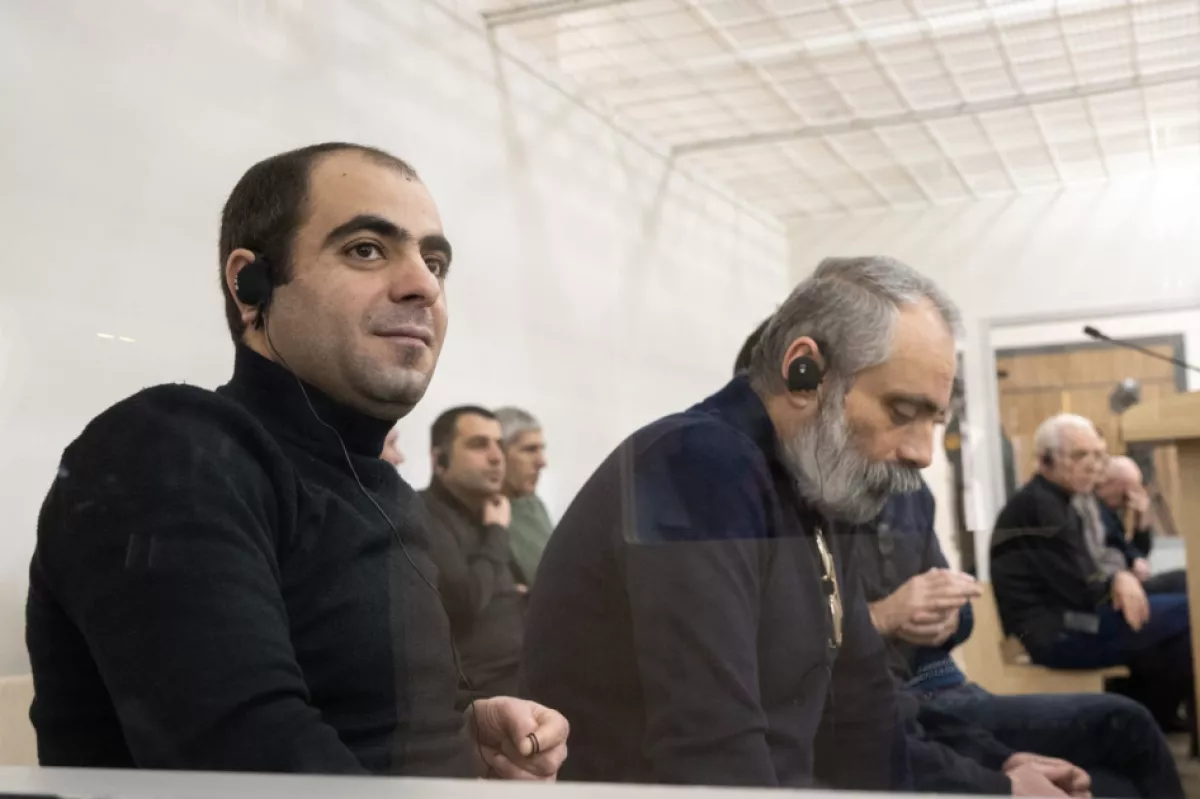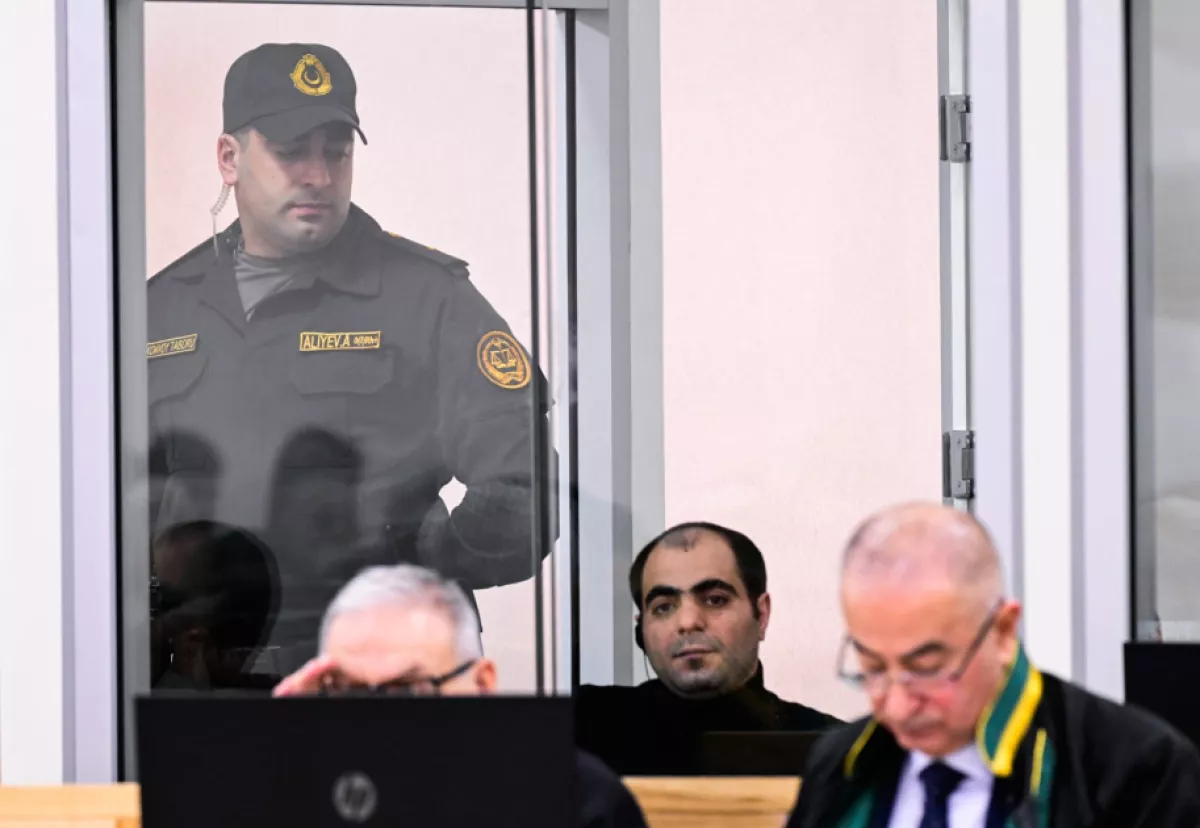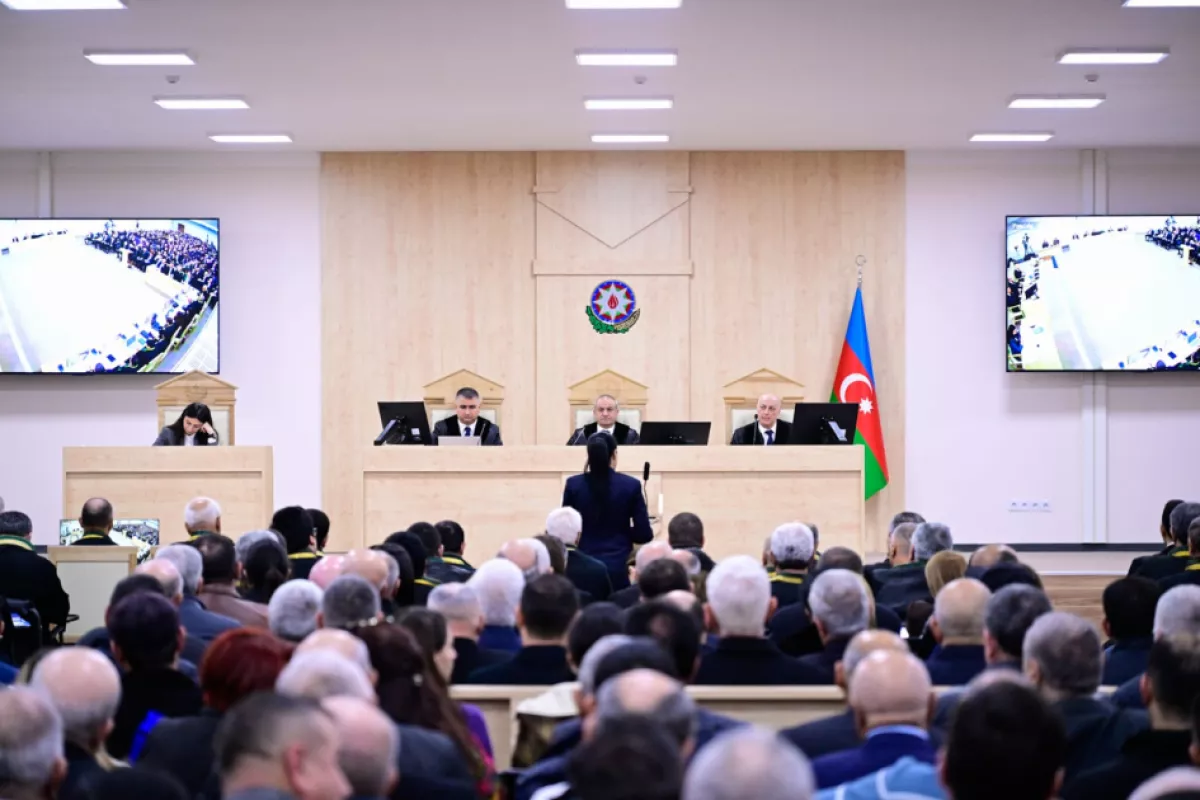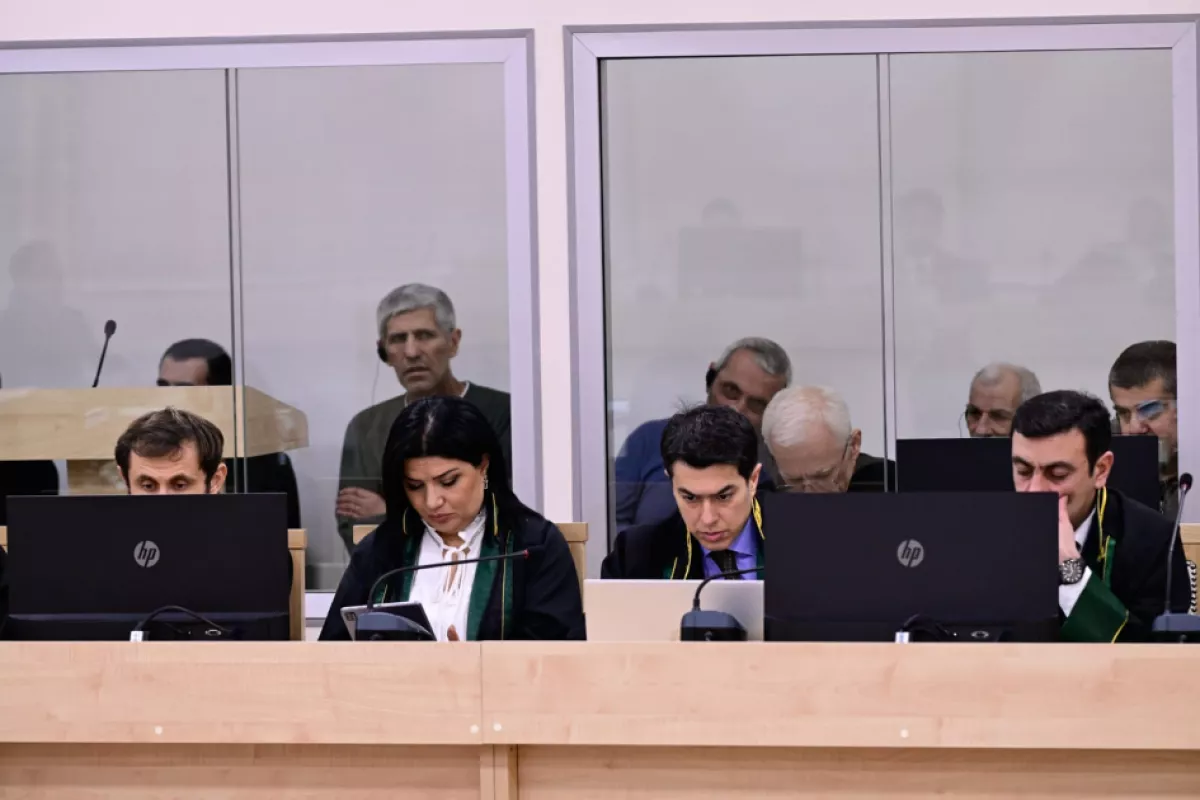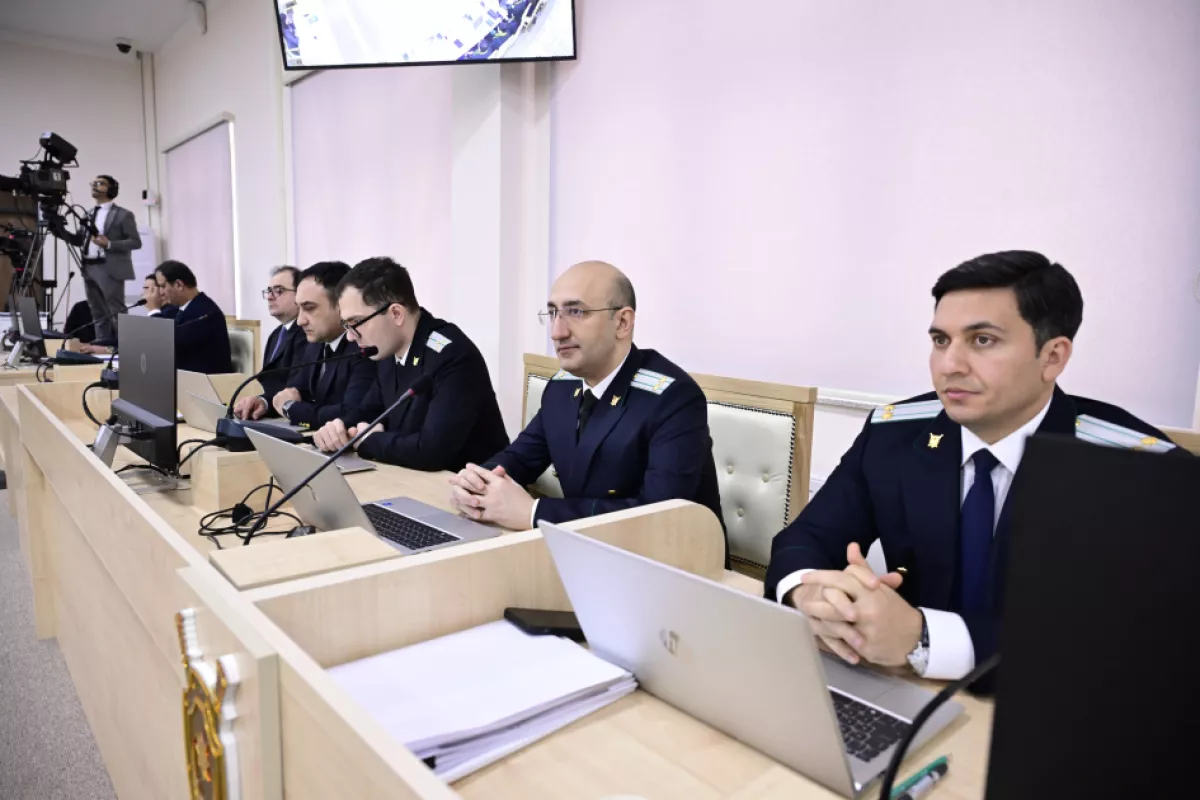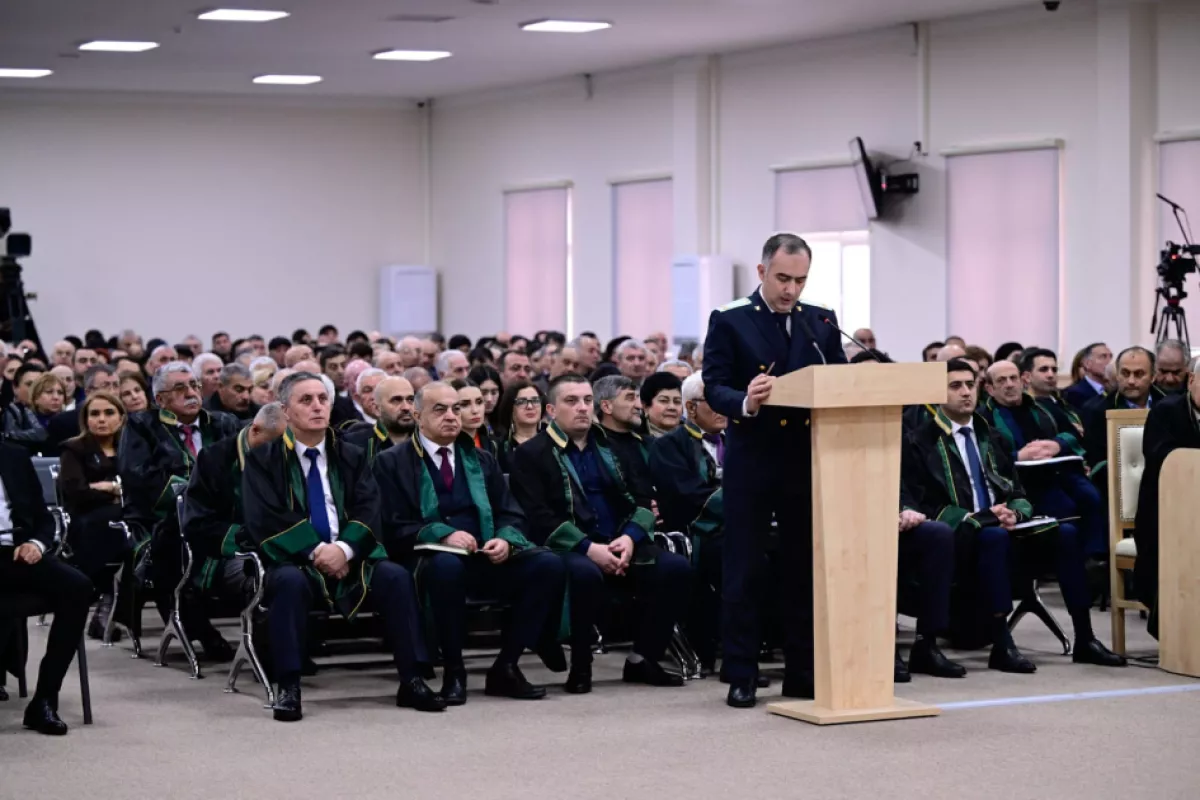Trial of Armenian war crimes suspects continues in Baku PHOTO
On February 7, the trial proceedings continued for citizens of the Republic of Armenia—Arayik Harutyunyan, Arkadi Ghukasyan, Bako Sahakyan, Davit Ishkhanyan, Davit Babayan, Lyova Mnatsakanyan, and others—who are accused of committing crimes against peace and humanity, war crimes, including the preparation and conduct of an aggressive war, genocide, violations of the laws and customs of war, as well as terrorism, financing of terrorism, violent seizure and retention of power, and numerous other offences as a result of Armenia's military aggression.
The court hearing was held at the Baku Military Court, located in the Baku Court Complex, under the chairmanship of Judge Zeynal Aghayev, with Judges Jamal Ramazanov and Anar Rzayev, and reserve Judge Gunel Samadova. Each of the accused was provided with an interpreter in their native language and legal counsel for their defence, Caliber.Az reports via Azertag.
The court session was attended by some of the victims, their legal successors and representatives, prosecutors representing the state prosecution, as well as the head of the Cabinet of Ministers' Office, Rufat Mammadov, who participated as a victim on behalf of the Azerbaijani state.
During the court proceedings, the operative part of the indictment in the criminal case was read out. The state prosecutors announced the episodes of criminal acts committed with the direct involvement, instructions, and guidance of the Armenian state, its officials, and armed forces, with the provision of material, technical, and other support on the territory of Azerbaijan. It was noted that the criminal organization established on the territory of Azerbaijan operated under the leadership and with the direct or indirect involvement of Robert Sedraki Kocharyan, Serzh Azati Sargsyan, Vazgen Mikayeli Manukyan, Vazgen Zaveni Sargsyan, Samvel Andraniki Babayan, Vitali Mikayeli Balasanyan, Zori Hayki Balayan, Seyran Musheghi Ohanyan, Arshavir Surenovich Karamyan, Monte Charles Melkonian and other individuals with the aim of military aggression against Azerbaijan.
State prosecutor Tarana Mammadova, citing the indictment, announced that as a result of the aggressive war conducted by the Armenian armed forces and illegal armed groups, 12 cities, 18 settlements, and 895 villages— a total of 925 residential areas—of Azerbaijan’s sovereign territory were occupied and remained under occupation for many years. This led to material damage exceeding 19 billion manats ($11.1 billion) across 37,168 properties, including both private and state-owned assets.
State prosecutor Fuad Musayev stated that the occupation of the city of Khankendi and its Karkijahan settlement resulted in the displacement of 2,944 civilians, with material damage exceeding 636 million manats ($374 million) inflicted on 4,579 properties, including both private and state-owned assets.
The occupation of Karki village in the Sharur district of the Nakhchivan Autonomous Republic (currently part of the Sadarak district) led to the displacement of 461 civilians, with material damage exceeding 7 million manats ($4.1 million) across 54 properties.
The occupation of seven villages in the Gazakh district—Baghanis-Ayrim, Ashaghi Askipara, Kheyrimli, Barkhudarlı, Sofulu, Qizilhajili, and Yukhari Askipara—resulted in the displacement of 3,159 civilians and material damage exceeding 137 million manats ($80 million) across 896 properties, including private and state-owned assets.
The occupation of Khojaly district, which included the city of Khojaly, the settlement of Asgaran, and a total of 50 villages, resulted in material damage exceeding 103 million manats ($60.5 million) across 1,067 properties, including both private and state-owned assets. As a consequence, 7,161 civilians were forcibly displaced.
Senior Assistant to the Prosecutor General, Vusal Aliyev, stated that the occupation of Shusha district, which included the city of Shusha, the settlement of Turshsu, and 37 villages, led to the displacement of 16,299 civilians. The occupation caused material damage exceeding 391 million manats ($230 million) across 2,769 properties, including private and state-owned assets.
The occupation of Khojavand district, which included the city of Khojavand, two settlements (Girmizi Bazar and Hadrut), and 80 villages, resulted in the forced displacement of 7,451 Azerbaijani civilians. The occupation caused material damage exceeding 340 million manats ($200 million) across 2,607 properties, including both private and state-owned assets.
The occupation of Lachin district, which included the city of Lachin, the settlement of Qayghi, and 124 villages, led to the forced displacement of 57,047 civilians. Material damage exceeding 2.7 billion manats ($1.6 billion) was inflicted on a total of 15,459 properties, including private and state-owned assets.
The occupation of Kalbajar district, which included the city of Kalbajar, the settlement of Istisu, and 147 villages, resulted in the displacement of 48,847 civilians. The occupation caused material damage exceeding 2.2 billion manats ($1.3 billion) across 17,489 properties, including both private and state-owned assets.
Assistant to the Prosecutor General for Special Assignments, Tugay Rahimli, announced that the occupation of several villages and settlements in Tartar district resulted in the forced displacement of 899 civilians. The total material damage exceeded 155 million manats ($91.1 million) across 1,127 properties, including both private and state-owned assets.
As a result of the occupation of a large part of Aghdam district, 100,574 civilians were displaced. The occupation caused material damage exceeding 3.7 billion manats ($2.2 billion) across 31,736 properties, including private and state-owned assets.
The occupation of a large part of Fuzuli district led to the displacement of 83,544 civilians, with total material damage exceeding 3.4 billion manats ($2 billion) across 22,635 properties, including both private and state-owned assets.
The occupation of Jabrayil district, including the city of Jabrayil, the settlements of Khalafli, Khudafarin, Gumlag, and Mahmudlu, as well as 92 villages, resulted in the forced displacement of 52,141 civilians. The occupation caused material damage exceeding 2.1 billion manats ($1.2 billion) across 15,206 properties, including private and state-owned assets.
Head of the Department for the Defense of Public Prosecution at the Prosecutor General’s Office, Nasir Bayramov, noted that the occupation of Zangilan district, which included the city of Zangilan, five settlements, and 79 villages, resulted in the forced displacement of 32,775 civilians. The total material damage exceeded 1.3 billion manats ($764 million) across 9,679 properties, including both private and state-owned assets.
The occupation of Gubadli district, which included the city of Gubadli and 93 villages, led to the displacement of 29,539 civilians. The total material damage exceeded 1.8 billion manats ($1 billion) across 10,159 properties, including private and state-owned assets.
Additionally, the indictment stated that as a result of the aggressive war, at least 697 historical and cultural monuments belonging to the cultural heritage of the Republic of Azerbaijan were turned into targets of attack, used to support military operations, deliberately set on fire on a large scale, shelled and blown up with artillery, and partially or completely destroyed through other physical means. Additionally, acts of theft, looting, and vandalism were committed, causing material damage exceeding 906 million manats ($532 million) to the Republic of Azerbaijan and the Azerbaijani people.
Furthermore, taking into account the funds spent on the social welfare and living conditions of displaced civilians, the total material damage to the Azerbaijani state due to the occupation of its sovereign territories exceeds 8.8 billion manats ($5.2 billion).
State Prosecutor Vusal Abdullayev then proceeded to outline cases of genocide and mass extermination committed against the Azerbaijani people during the aggressive war.
It was stated that armed attacks were carried out against Khojaly district and surrounding settlements with the intent to annihilate the Azerbaijani population based on their ethnic identity. Acts of extreme brutality were committed, including the killing of civilians, infliction of severe physical and mental harm, scalping, mutilation (such as cutting off ears, noses, and genital organs), gouging out eyes, burning people alive, and other atrocities. The indictment also mentions that some of these crimes were carried out over the graves of neutralized Armenian militants, with their heads cut off as ritualistic acts. No distinction was made between women, the elderly, or children, resulting in the deliberate killing of 613 people in what is recognized as the Khojaly Genocide.
The trial will continue on February 11.
To recap, 15 individuals—Arayik Vladimiri Harutyunyan, Arkadi Arshaviri Ghukasyan, Bako Sahaki Sahakyan, Davit Rubeni Ishkhanyan, David Azatini Manukyan, Davit Klimi Babayan, Levon Henrikovich Mnatsakanyan, Vasili Ivani Beglaryan, Erik Roberti Ghazaryan, Davit Nelsoni Allahverdiyan, Gurgen Homeri Stepanyan, Levon Romiki Balayan, Madat Arakeloviç Babayan, Garik Grigori Martirosyan, Melikset Vladimiri Pashayan—have been charged under multiple articles of the Criminal Code of Azerbaijan, including Article 100 (aggressive war planning and execution), Article 102 (attacks on internationally protected persons or entities), Article 103 (genocide), Article 105 (extermination of a population), Article 106 (slavery), Article 107 (deportation or forcible displacement), Article 109 (persecution), Article 110 (enforced disappearance), Article 112 (unlawful deprivation of liberty), Article 113 (torture), Article 114 (mercenarism), Article 115 (war crimes), Article 116 (violations of international humanitarian law), Article 118 (war looting), Article 120 (premeditated murder), Article 192 (illegal business activities), Article 214 (terrorism), Article 214-1 (terrorism financing), Article 218 (criminal organization formation), Article 228 (illegal possession and transportation of weapons and explosives), Article 270-1 (threats to aviation security), Article 277 (assassination of state or public figures), Article 278 (violent seizure of power and forced constitutional change), and Article 279 (unauthorized armed group formation), along with other legal provisions.




